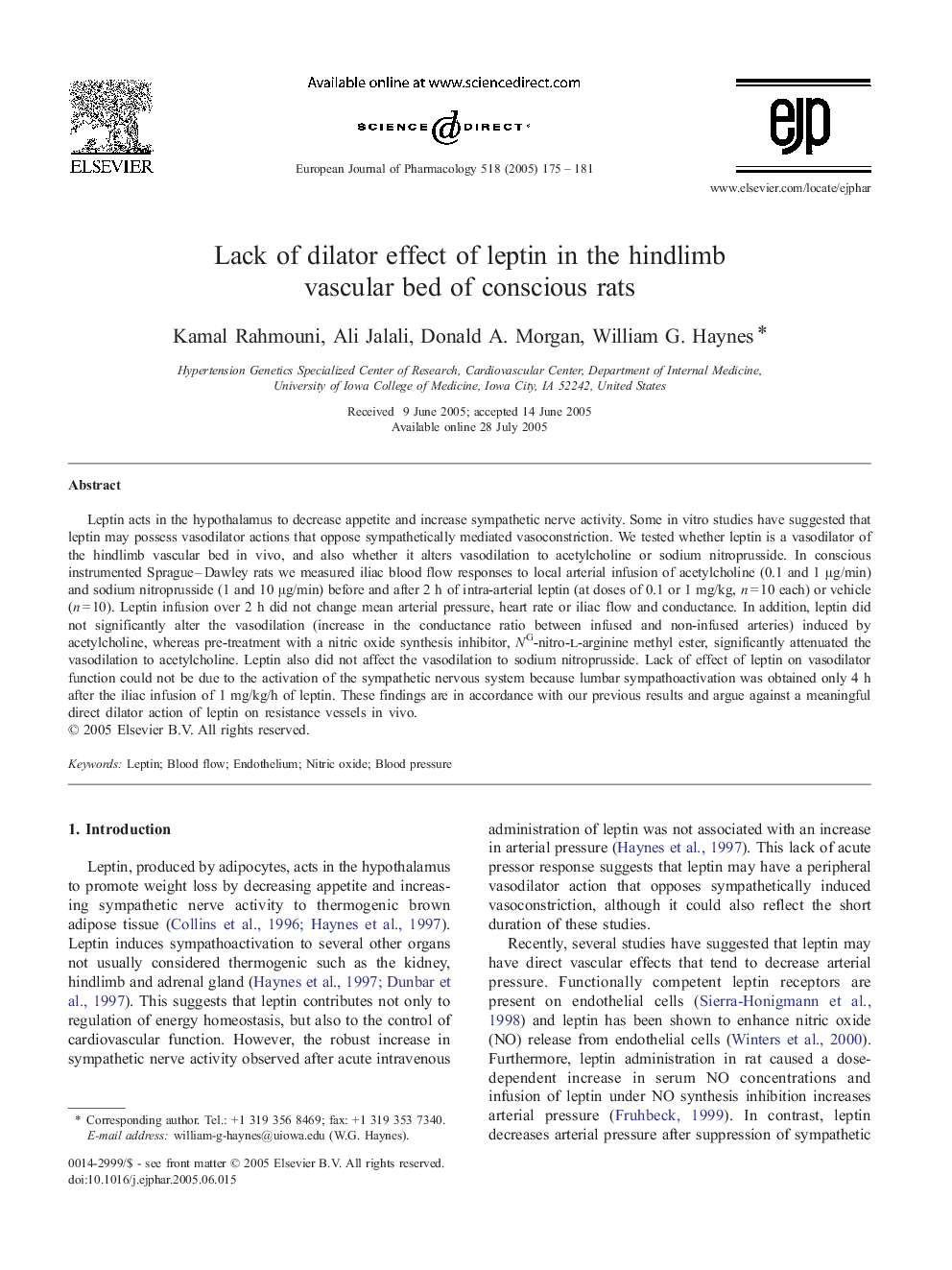| Article ID | Journal | Published Year | Pages | File Type |
|---|---|---|---|---|
| 9921190 | European Journal of Pharmacology | 2005 | 7 Pages |
Abstract
Leptin acts in the hypothalamus to decrease appetite and increase sympathetic nerve activity. Some in vitro studies have suggested that leptin may possess vasodilator actions that oppose sympathetically mediated vasoconstriction. We tested whether leptin is a vasodilator of the hindlimb vascular bed in vivo, and also whether it alters vasodilation to acetylcholine or sodium nitroprusside. In conscious instrumented Sprague-Dawley rats we measured iliac blood flow responses to local arterial infusion of acetylcholine (0.1 and 1 μg/min) and sodium nitroprusside (1 and 10 μg/min) before and after 2 h of intra-arterial leptin (at doses of 0.1 or 1 mg/kg, n = 10 each) or vehicle (n = 10). Leptin infusion over 2 h did not change mean arterial pressure, heart rate or iliac flow and conductance. In addition, leptin did not significantly alter the vasodilation (increase in the conductance ratio between infused and non-infused arteries) induced by acetylcholine, whereas pre-treatment with a nitric oxide synthesis inhibitor, NG-nitro-l-arginine methyl ester, significantly attenuated the vasodilation to acetylcholine. Leptin also did not affect the vasodilation to sodium nitroprusside. Lack of effect of leptin on vasodilator function could not be due to the activation of the sympathetic nervous system because lumbar sympathoactivation was obtained only 4 h after the iliac infusion of 1 mg/kg/h of leptin. These findings are in accordance with our previous results and argue against a meaningful direct dilator action of leptin on resistance vessels in vivo.
Related Topics
Life Sciences
Neuroscience
Cellular and Molecular Neuroscience
Authors
Kamal Rahmouni, Ali Jalali, Donald A. Morgan, William G. Haynes,
